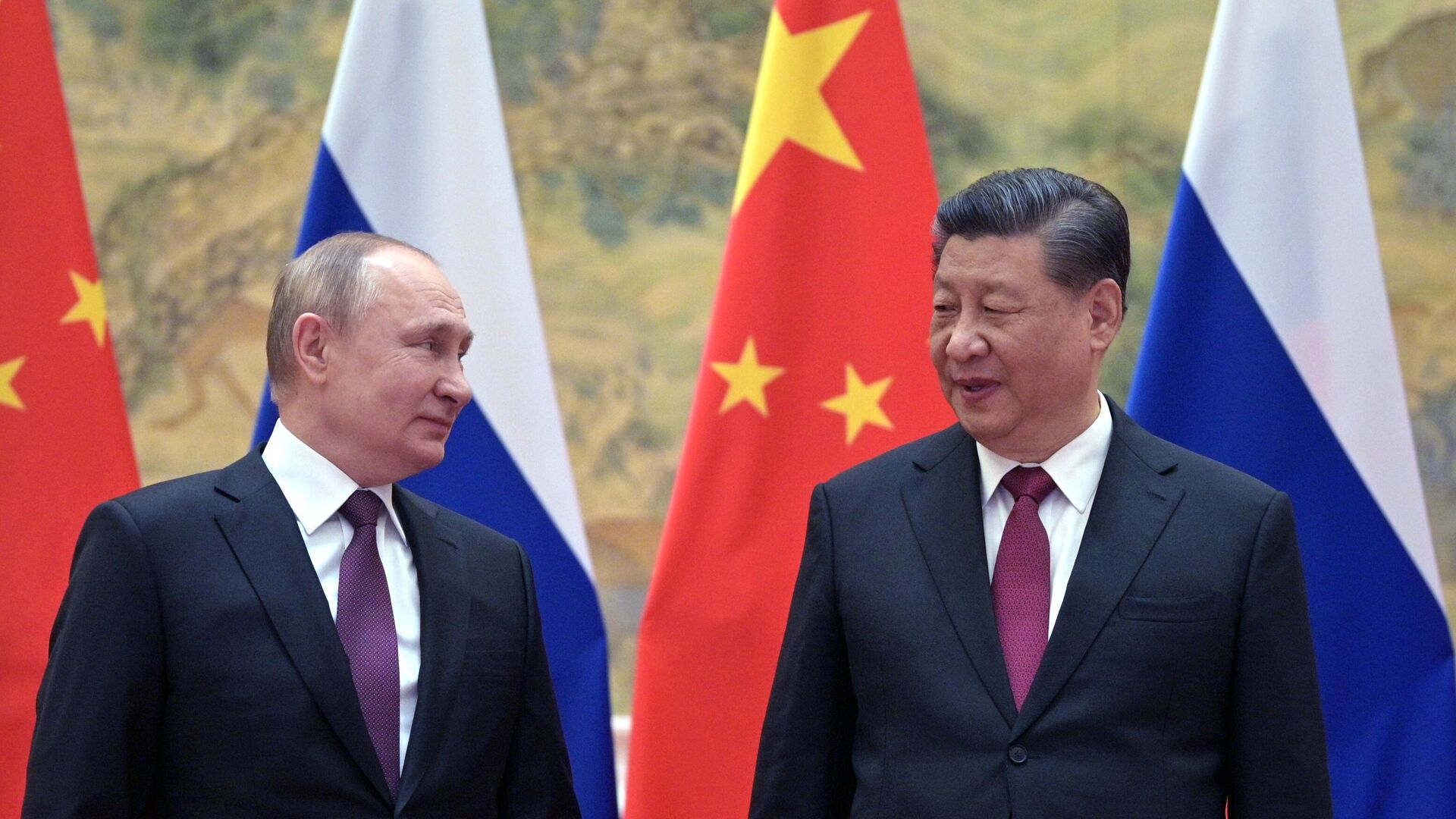https://sputnikglobe.com/20220204/russia-china-issue-joint-statement-on-opposition-to-nato-expansion-slam-blocs-cold-war-approach-1092743120.html
Russia, China Oppose NATO Expansion, Alliance's 'Cold War' Approach
Russia, China Oppose NATO Expansion, Alliance's 'Cold War' Approach
Sputnik International
Russian President Vladimir Putin arrived in Beijing on Friday to meet with his Chinese counterpart Xi Jinping and observe the opening ceremony of the 2022... 04.02.2022, Sputnik International
2022-02-04T09:31+0000
2022-02-04T09:31+0000
2022-02-04T16:15+0000
nato
https://cdn1.img.sputnikglobe.com/img/07e6/02/04/1092757414_0:0:3111:1751_1920x0_80_0_0_4af60064bc536df4a51885692cb116b0.jpg
Russia and China are opposed to NATO's further expansion, and to the Western alliance's 'Cold War approach' to international affairs, the two countries said in a joint statement."Today, the world is undergoing massive changes. Humanity is entering a new era of rapid development and large-scale transformations. Such processes and phenomena as multipolarity, economic globalisation, the informatisation of society, cultural diversity, the transformation of the system of global governance and the world order are developing, the interconnectedness and interdependence of states is increasing, a trend is being formed to redistribute the balance of world power. There is a growing demand from the world community for leadership in the interests of peaceful and sustainable development," the statement, signed by Putin and Xi and published on the Russian president's website on Friday, reads.The two countries appeal to all nations, calling for the strengthening "of dialogue and mutual trust, a deepening of mutual understanding, the upholding of universal values such as peace, development, equality, justice, democracy and freedom, respect for the rights of peoples to independently choose the path of development of their countries, and the sovereignty and interests of states in the field of security and development." The joint statement also calls on the international community to "protect" the international system in which the United Nations plays a central role, and calls for the creation of "true multilateralism" in the interests of the "democratisation of international relations, peace, stability and sustainable development."NATO, TaiwanRussia and China "believe that individual states, military-political alliances or coalitions which pursue unilateral military advantages to the detriment of the security of others, including by means of unfair competition, serve to intensify geopolitical rivalry, increase antagonism and confrontation, and seriously undermine order in the fields of international security and global strategic stability."The two countries also "oppose the formation of closed bloc structures and opposing camps in the Asia-Pacific region, and remain highly vigilant regarding the negative impact to peace and stability in this region of the US Indo-Pacific strategy." Instead, the joint communique notes, Moscow and Beijing seek to build "an equal, open and inclusive security system" in the Indo-Pacific which is "not directed against third countries".The Chinese side "supports the proposals put forward by the Russian Federation on the formation of long-term legally binding security guarantees in Europe," the statement notes.The two countries pledge to "oppose the actions of external forces to undermine security and stability in common adjacent regions," and will oppose "interference of external forces under any pretext in the internal affairs of sovereign countries, oppose 'colour revolutions' and increase cooperation" in these fields.The joint statement also supports the idea of "a unified global anti-terrorist front" in which a central role is played by the UN. At the same time, "the parties oppose the politicization of the issue of combating terrorism...and condemn interference in the internal affairs of other states for geopolitical purposes through the use of terrorist and extremist groups, or under the banner of combating international terrorism and extremism."Strategic SecurityThe countries mark "serious concern" over the creation of the AUKUS tripartite security partnership between the US, the UK and Australia. "Russia and China believe that such actions run counter to the objectives of ensuring security and sustainable development of the Asia-Pacific region, increase the risk of an arms race in the region, and create serious risks of nuclear proliferation."On nuclear policy in general, Russia and China agree on the need to "abandon the Cold War mentality and zero-sum games" approach, and call on nuclear powers to withdraw nuclear weapons deployed abroad, to "rule out the unrestricted development of a global missile defence system" by the US, and call for steps to be taken to lessen the risk of nuclear war and "reduce the role of nuclear weapons" in nations' national security policy.More broadly, Russia and China oppose the US policy trend of ripping up international arms control agreements, saying such actions have had "an extremely negative impact on international and regional security and stability," with US efforts to construct a global missile defence shield, "combined with the building up of high-precision non-nuclear weapons for disarming strikes and other strategic tasks," and efforts to militarise space, seriously damaging global security.Eurasian Economic Union, One Belt, One RoadThe communique commits Russia and China to "intensify work on linking the development plans of the Eurasian Economic Union and the One Belt, One Road initiative to deepen practical cooperation between the EEU and China in various fields, and to increase the level of interconnectedness between the Asia-Pacific and Eurasian regions," including in the interests of a "Greater Eurasian Partnership."The parties also agree to "deepen practical cooperation" in the development of the Arctic.Russia and China call on all countries to engage in "open, equal and non-discriminatory" cooperation in science and technology, to strengthen collaborative efforts on creating sustainable transport systems, and reaffirm their commitments to the global fight against climate change. Moscow and Beijing also plan to "continue to increase cooperation" in medicine, including insofar as the coronavirus pandemic is concerned, and also express a readiness to "strengthen dialogue" on issues including artificial intelligence and information security.The parties mark support for an international trade order based on the central role of the World Trade Organization, support the G20 format, support the "deepening of the strategic partnership" within the BRICS group of nations, support the Asia-Pacific Economic Cooperation and ASEAN forums, plan to expand cooperation in the 'Russia-India-China' format, and "aim to comprehensively strengthen the Shanghai Cooperation Organization" to further enhance its role in shaping a polycentric world order."The parties also express "deep concern" about Japan's plans to release radioactive wastewater from the Fukushima nuclear power plant into the world ocean, emphasizing "that the disposal of radioactive water must be approached responsibly and carried out on the basis of agreements between the Japanese side and neighbouring states, other interested parties and relevant international structures, and be subject to transparency and scientific reasoning in accordance with international law."
https://sputnikglobe.com/20220204/live-updates-putin-arrives-in-china-for-meeting-with-xi-opening-ceremony-of-winter-olympics-1092740196.html
https://sputnikglobe.com/20220126/moscow-says-received-some-answers-to-security-guarantee-proposals-but-not-in-written-form-1092524198.html
https://sputnikglobe.com/20220128/us-systematically-removed-trust-transparency-safeguards-preventing-nuclear-war-ignores-remainder-1092595388.html
https://sputnikglobe.com/20210906/moscow-bothered-by-uncontrolled-unrestricted-expansion-of-us-military-biolab-network-near-russia-1083808703.html
https://sputnikglobe.com/20220203/beijing-olympics-covid-19-vaccines--cooperation-putin-offers-insights-into-russian-chinese-ties-1092702457.html
https://sputnikglobe.com/20211222/pacific-collective-vows-to-oppose-japan-dumping-fukushimas-nuclear-waste-in-ocean-1091723668.html
Sputnik International
feedback@sputniknews.com
+74956456601
MIA „Rosiya Segodnya“
2022
News
en_EN
Sputnik International
feedback@sputniknews.com
+74956456601
MIA „Rosiya Segodnya“
Sputnik International
feedback@sputniknews.com
+74956456601
MIA „Rosiya Segodnya“
nato
Russia, China Oppose NATO Expansion, Alliance's 'Cold War' Approach
09:31 GMT 04.02.2022 (Updated: 16:15 GMT 04.02.2022) Russian President Vladimir Putin arrived in Beijing on Friday to meet with his Chinese counterpart Xi Jinping and observe the opening ceremony of the 2022 Winter Olympic Games.
Russia and China are opposed to NATO's further expansion, and to the Western alliance's 'Cold War approach' to international affairs, the two countries said in a joint statement.
"Today, the world is undergoing massive changes. Humanity is entering a new era of rapid development and large-scale transformations. Such processes and phenomena as multipolarity, economic globalisation, the informatisation of society, cultural diversity, the transformation of the system of global governance and the world order are developing, the interconnectedness and interdependence of states is increasing, a trend is being formed to redistribute the balance of world power. There is a growing demand from the world community for leadership in the interests of peaceful and sustainable development," the
statement, signed by Putin and Xi and published on the Russian president's website on Friday, reads.
"At the same time, against the background of the ongoing coronavirus pandemic, the situation in the field of international and regional security is becoming more and more complicated every day, with global challenges and threats multiplying. Some forces representing a minority on the world stage continue to advocate for unilateral approaches to solving international problems and resort to the politics of force, engage in interference in the internal affairs of other states, cause damage to their legitimate rights and interests, provoke contradictions, disagreements and confrontation, and hinder the development and progress of mankind, creating opposition from the international community," it adds.
The two countries appeal to all nations, calling for the strengthening "of dialogue and mutual trust, a deepening of mutual understanding, the upholding of universal values such as peace, development, equality, justice, democracy and freedom, respect for the rights of peoples to independently choose the path of development of their countries, and the sovereignty and interests of states in the field of security and development."
The joint statement also calls on the international community to "protect" the international system in which the United Nations plays a central role, and calls for the creation of "true multilateralism" in the interests of the "democratisation of international relations, peace, stability and sustainable development."
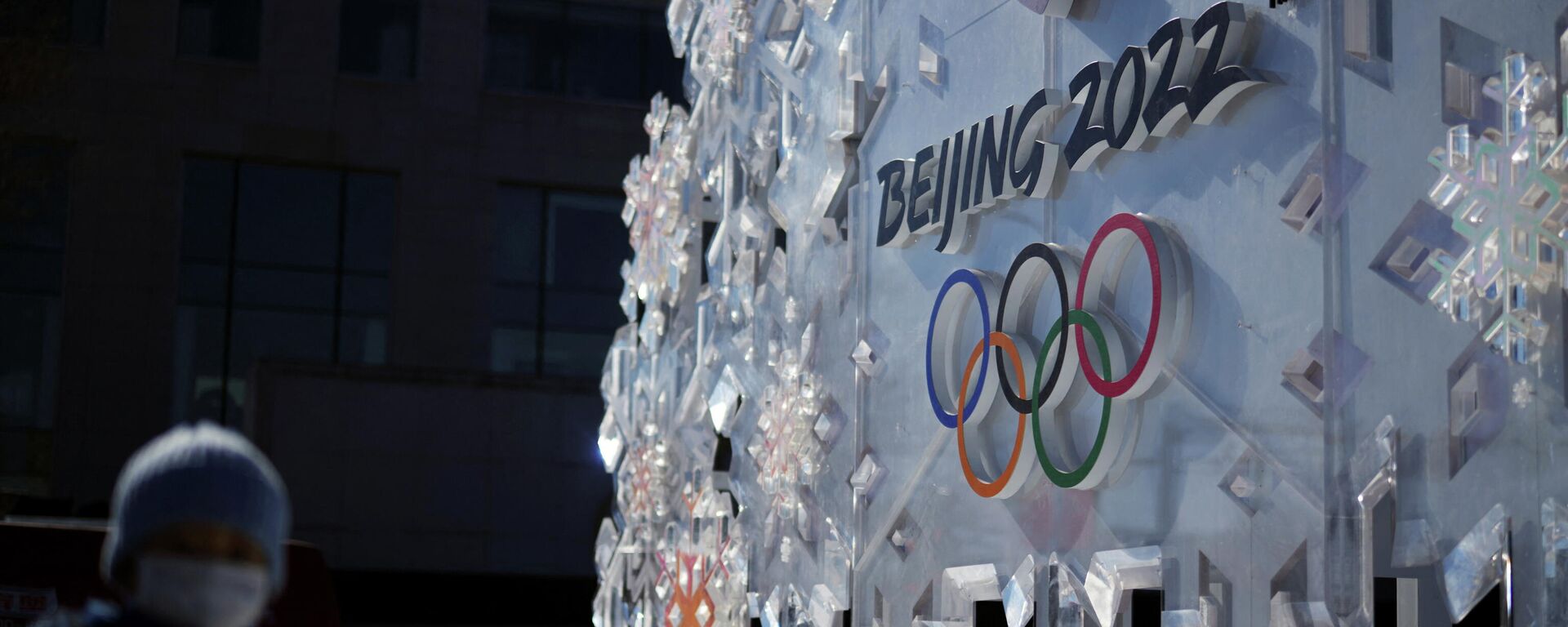
4 February 2022, 07:45 GMT
Russia and China "believe that individual states, military-political alliances or coalitions which pursue unilateral military advantages to the detriment of the security of others, including by means of unfair competition, serve to intensify geopolitical rivalry, increase antagonism and confrontation, and seriously undermine order in the fields of international security and global strategic stability."
"The parties oppose the further expansion of NATO, call on the North Atlantic alliance to abandon the ideologised approaches of the cold war, respect the sovereignty, security and interests of other countries, the diversity of their civilisational and cultural-historical patterns, and treat the peaceful development of other states objectively and fairly," the joint statement says.
The two countries also "oppose the formation of closed bloc structures and opposing camps in the Asia-Pacific region, and remain highly vigilant regarding the negative impact to peace and stability in this region of the US Indo-Pacific strategy." Instead, the joint communique notes, Moscow and Beijing seek to build "an equal, open and inclusive security system" in the Indo-Pacific which is "not directed against third countries".
Russia, for its part, "reaffirms its adherence to the 'One China' principle, confirms that Taiwan is an integral part of China, and opposes Taiwan's independence in any form."
The Chinese side "supports the proposals put forward by the Russian Federation on the formation of long-term legally binding security guarantees in Europe," the statement notes.
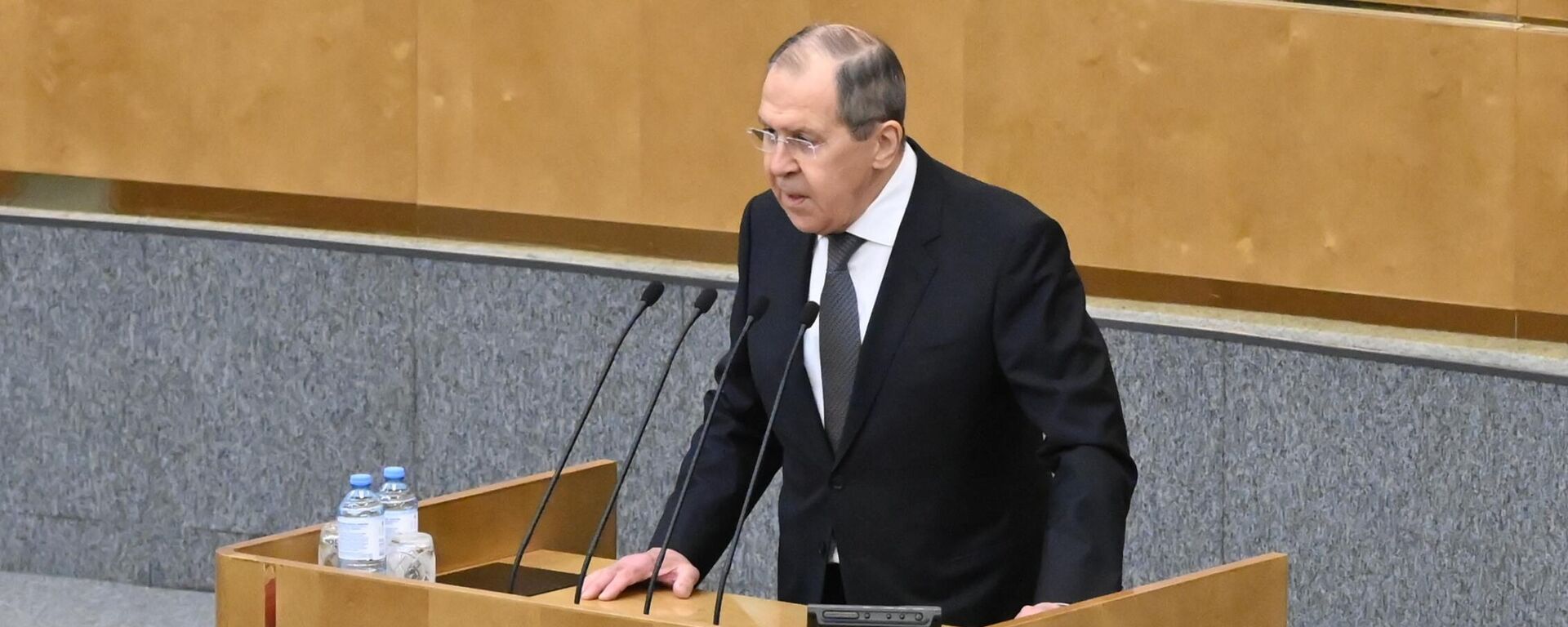
26 January 2022, 09:04 GMT
The two countries pledge to "oppose the actions of external forces to undermine security and stability in common adjacent regions," and will oppose "interference of external forces under any pretext in the internal affairs of sovereign countries, oppose 'colour revolutions' and increase cooperation" in these fields.
The joint statement also supports the idea of "a unified global anti-terrorist front" in which a central role is played by the UN. At the same time, "the parties oppose the politicization of the issue of combating terrorism...and condemn interference in the internal affairs of other states for geopolitical purposes through the use of terrorist and extremist groups, or under the banner of combating international terrorism and extremism."
The countries mark "serious concern" over the creation of the AUKUS tripartite security partnership between the US, the UK and Australia. "Russia and China believe that such actions run counter to the objectives of ensuring security and sustainable development of the Asia-Pacific region, increase the risk of an arms race in the region, and create serious risks of nuclear proliferation."
On nuclear policy in general, Russia and China agree on the need to "abandon the Cold War mentality and zero-sum games" approach, and call on nuclear powers to withdraw nuclear weapons deployed abroad, to "rule out the unrestricted development of a global missile defence system" by the US, and call for steps to be taken to lessen the risk of nuclear war and "reduce the role of nuclear weapons" in nations' national security policy.
The joint statement condemns the US's 2019 decision to withdraw from the Intermediate-Range Nuclear Forces Treaty and the subsequent acceleration of research and development of new US land-based intermediate-range and shorter-range missiles, along with talk about their deployment in the Asia-Pacific and European regions and plans to transfer such weapons to allies. These processes, the two powers say, serve only to "increase tension and distrust, increase risks to international and regional security, lead to a weakening of the international system of non-proliferation and arms control, and undermine global strategic stability."
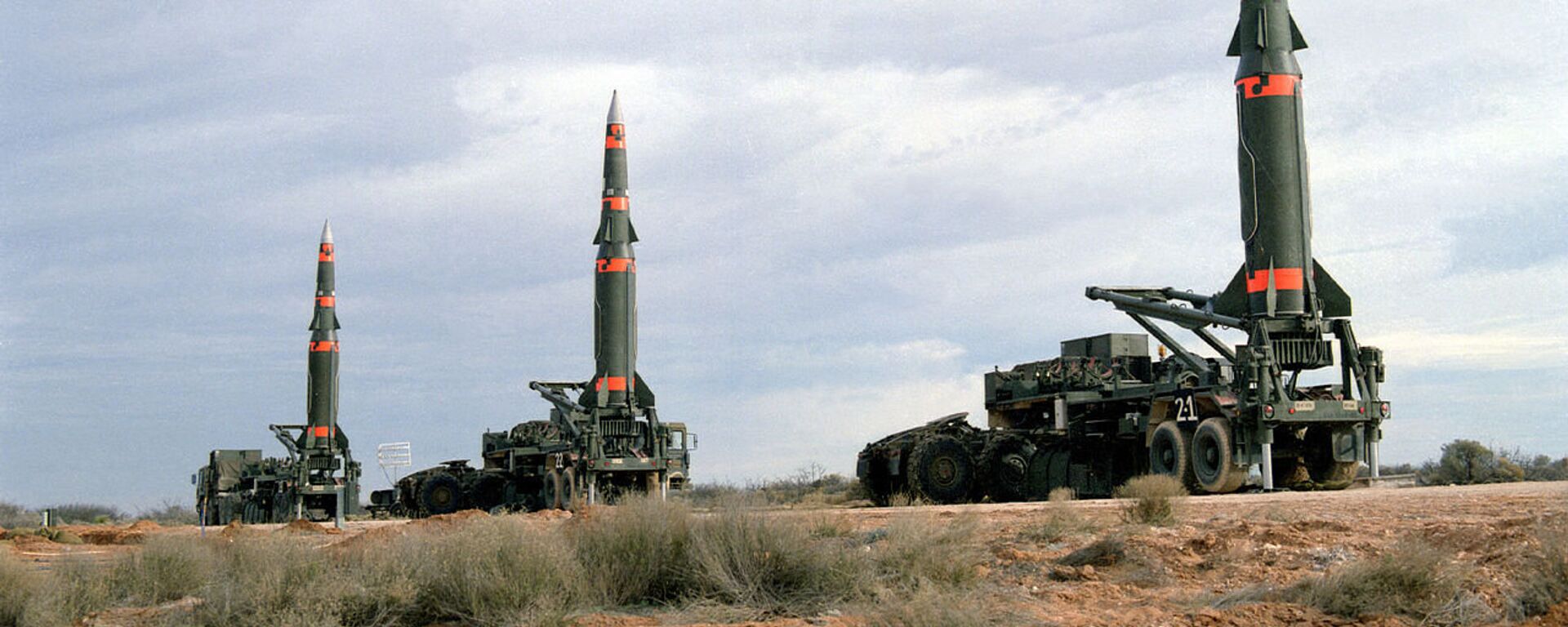
28 January 2022, 23:33 GMT
More broadly, Russia and China oppose the US policy trend of ripping up international arms control agreements, saying such actions have had "an extremely negative impact on international and regional security and stability," with US efforts to construct a global missile defence shield, "combined with the building up of high-precision non-nuclear weapons for disarming strikes and other strategic tasks," and efforts to militarise space, seriously damaging global security.
The joint statement also condemns the "domestic and foreign military-biological activities of the United States and its allies," saying these actions "raise serious concerns and questions in the international community" regarding Washington's compliance with the Chemical Weapons Convention. "The parties share the view that such activities pose a serious threat to the national security" of both Russia and China "and damage the security of their respective regions," and "call on the United States and its allies to act openly, transparently and responsibly by properly reporting on their biological and military activities carried out abroad and on their national territory."
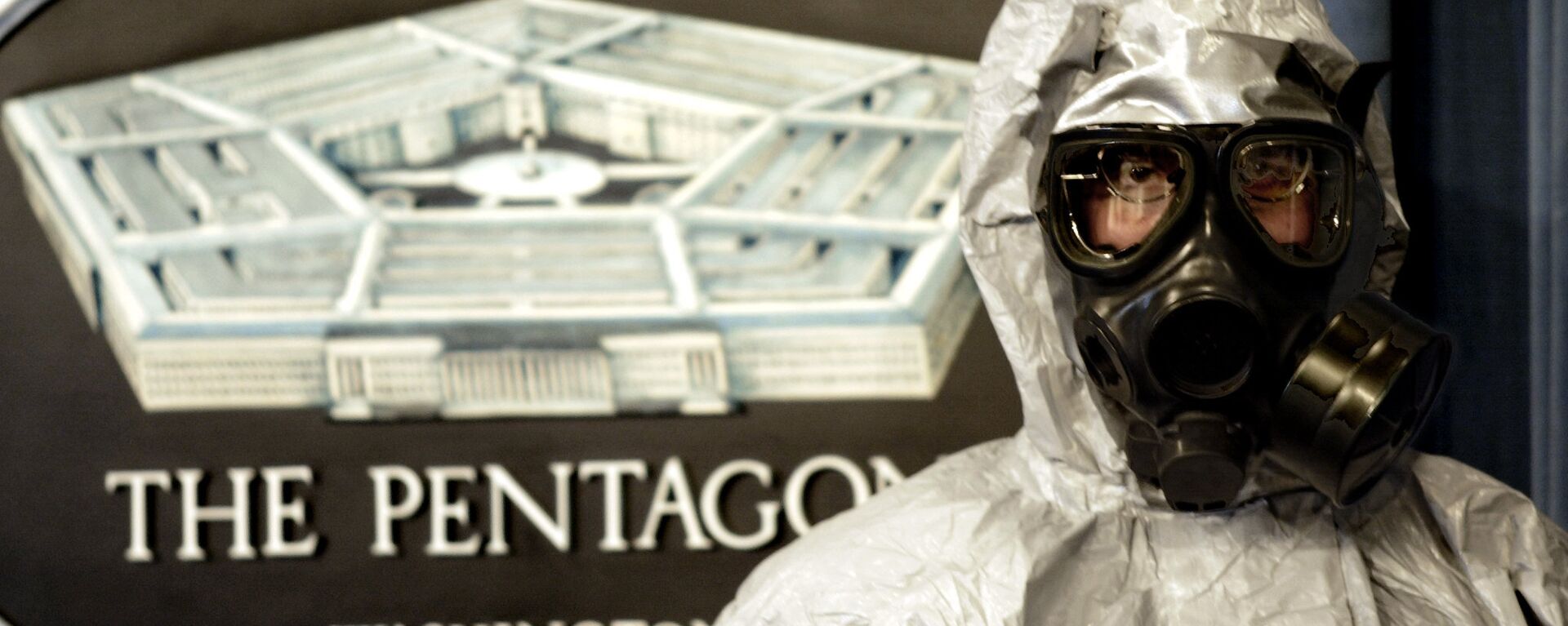
6 September 2021, 13:54 GMT
Eurasian Economic Union, One Belt, One Road
The communique commits Russia and China to "intensify work on linking the development plans of the Eurasian Economic Union and the One Belt, One Road initiative to deepen practical cooperation between the EEU and China in various fields, and to increase the level of interconnectedness between the Asia-Pacific and Eurasian regions," including in the interests of a "Greater Eurasian Partnership."
The parties also agree to "deepen practical cooperation" in the development of the Arctic.
Russia and China call on all countries to engage in "open, equal and non-discriminatory" cooperation in science and technology, to strengthen collaborative efforts on creating sustainable transport systems, and reaffirm their commitments to the global fight against climate change.
Moscow and Beijing also plan to "continue to increase cooperation" in medicine, including insofar as the coronavirus pandemic is concerned, and also express a readiness to "strengthen dialogue" on issues including artificial intelligence and information security.
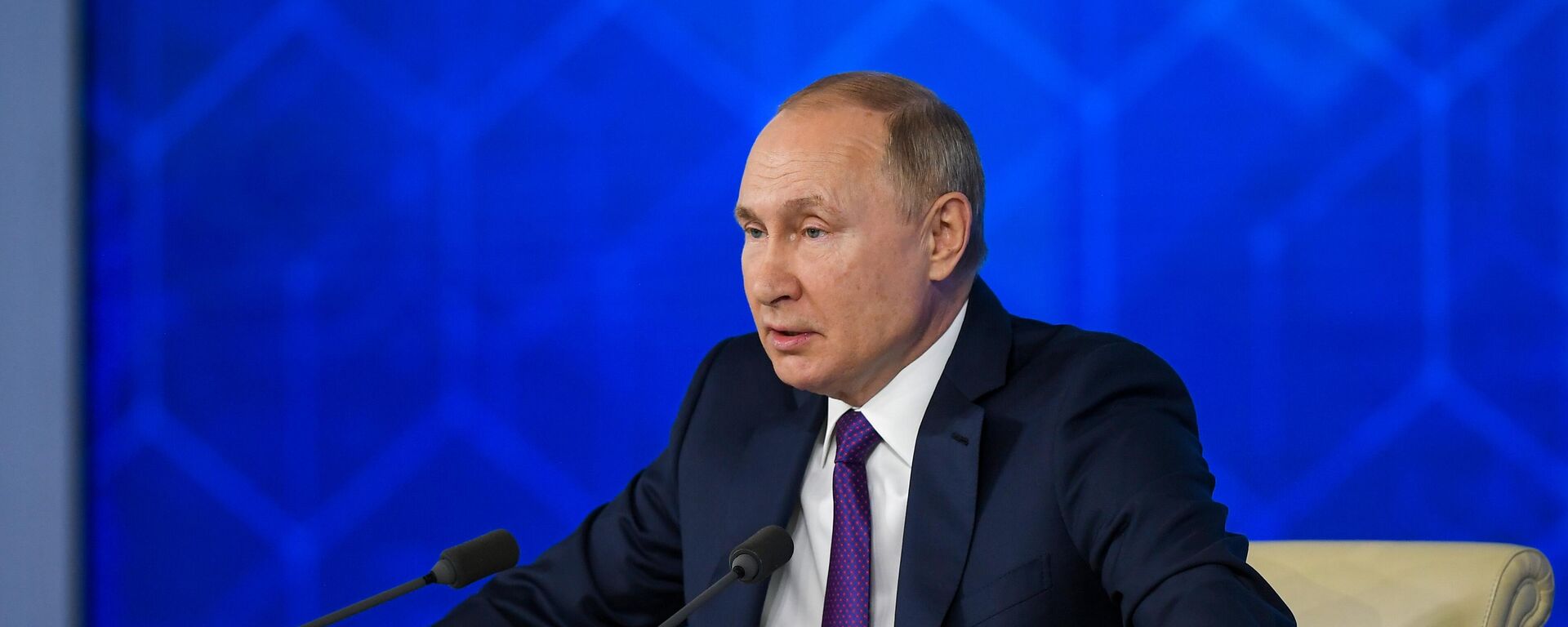
3 February 2022, 04:04 GMT
The parties mark support for an international trade order based on the central role of the World Trade Organization, support the G20 format, support the "deepening of the strategic partnership" within the BRICS group of nations, support the Asia-Pacific Economic Cooperation and ASEAN forums, plan to expand cooperation in the 'Russia-India-China' format, and "aim to comprehensively strengthen the Shanghai Cooperation Organization" to further enhance its role in shaping a polycentric world order."
The parties also express "deep concern" about Japan's plans to release radioactive wastewater from the Fukushima nuclear power plant into the world ocean, emphasizing "that the disposal of radioactive water must be approached responsibly and carried out on the basis of agreements between the Japanese side and neighbouring states, other interested parties and relevant international structures, and be subject to transparency and scientific reasoning in accordance with international law."
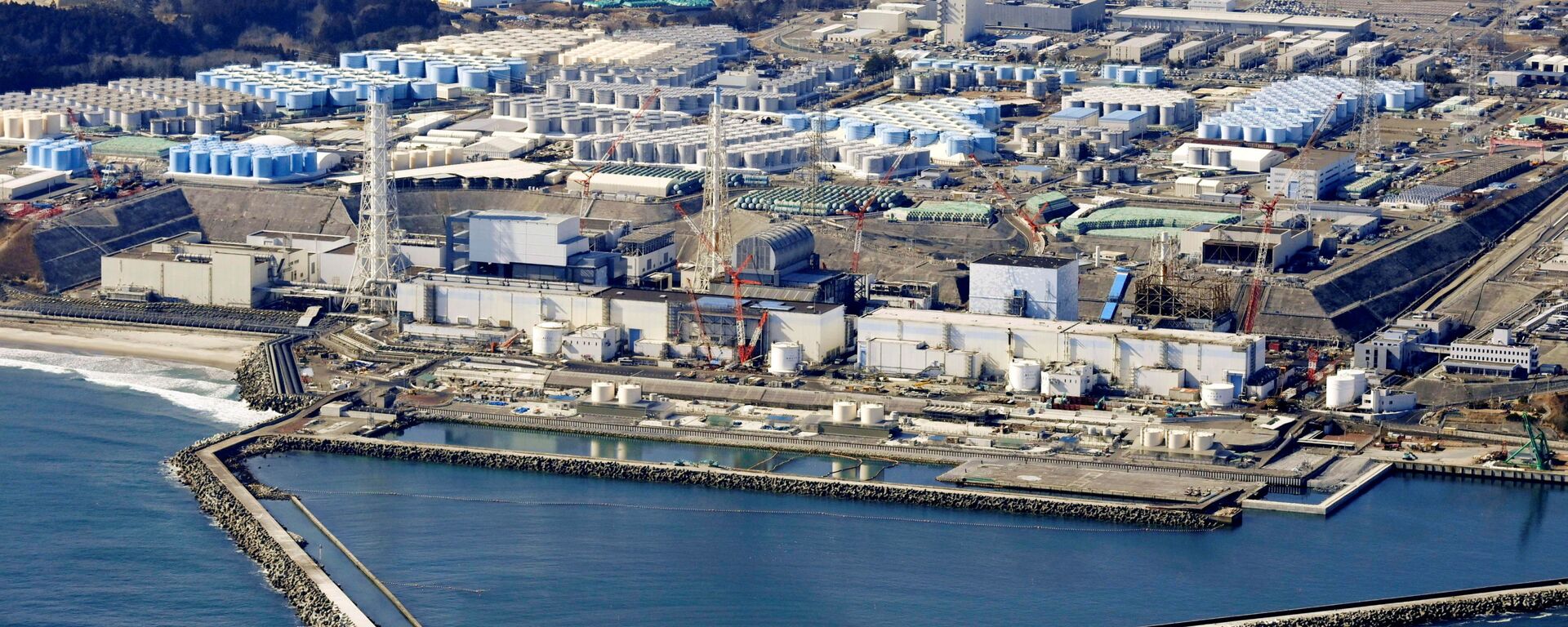
22 December 2021, 15:18 GMT
